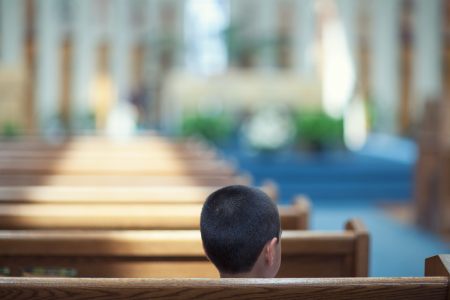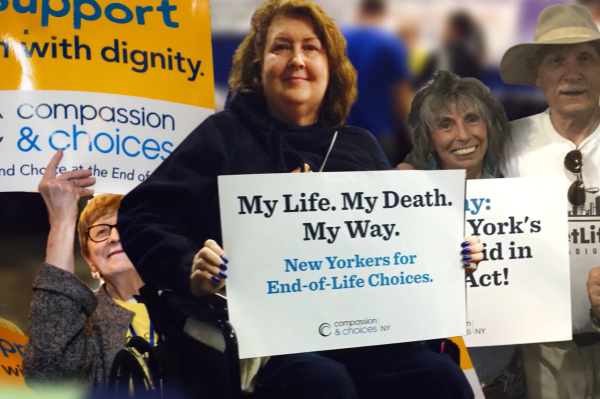Is gender equality shortchanging boys in churches, schools and other American institutions?

While parents in general believe institutions serve their children well, many are worried the majority, like churches and schools, have been serving their daughters better than their sons under norms of gender equality, new research suggests. And the only institutions where at least white parents believe boys are served slightly better are sports and other clubs.
Data from the 2020 American Family Survey, released in September, show that a striking minority, just 36%, of parents believe churches are serving their sons well. This share is almost equal to the 33% who say the same about how the criminal justice system is serving their sons. A minority of parents also believe churches are serving their daughters well but that number is five percentage points higher at 41%.
Daughters were also shown as being better served by every other institution highlighted in the survey, including the education system and friend networks. The only exceptions were sports and other clubs, which some 42% of particularly white parents believe are serving their sons well compared to 37% who say the same about how they serve their daughters.
The latest American Family Survey, was conducted between July 3 and July 14 in a partnership between the Deseret News and Brigham Young University’s Center for the Study of Elections and Democracy. The study explored several areas of family life, including relationships, economics, politics, health and culture. Market research and data analytics firm YouGov interviewed 3,251 respondents who were then matched down to a sample of 3,000 to produce a final dataset reflective of a sampling frame based on gender, age, race and education.
Surprising results

Jeremy C. Pope, co-director of the Center for the Study of Elections and Democracy and one of the lead investigators on the survey, told The Christian Post that he was particularly surprised by how poorly parents rated the church in serving their children, especially their sons.
“My first reaction to that institutions data was I was surprised churches didn’t do so well. I didn’t really think about this deeply ahead of time but I thought that churches would do a little bit better than they did,” he said.
“I was not surprised that the criminal justice system was low but to be honest, churches are kind of in there with the criminal justice system and that surprised me. In future years, we want to follow up on that because it suggests a bit of dissatisfaction in how churches in particular are serving sons.”
Pope, who is a father of three daughters, said he was also struck by the data showing almost all of the institutions underserving boys and he believes the push for gender equality could be “blinding us to problems with boys.”
“It’s striking to me that daughters tend to be served better by virtually all the institutions except for sports or other clubs and it is also striking to me that friend networks, which you wouldn’t necessarily think is fantastic, dramatically outperforming churches in terms of satisfaction with how it’s serving their kids,” he noted.
“I think within the norm of gender equality, that may be blinding us to problems with boys and problems facing boys that the public knows are out there but is sometimes reluctant to talk about because nobody wants to favor boys over girls.”
Pope further argued that what the data reveals is an increasing concern about the well-being of boys and he doesn’t believe the concern is misplaced.
“I have three daughters. I don’t worry a ton about them. They are great young women,” he said.
“The thing that I think this survey highlights this year about gender is that increasingly I see signs that society is concerned about boys. I have a feeling that that concern is not misplaced. I think we should be concerned about how our sons are doing, what their prospects are in life. And it probably means that parents and maybe more as a society [need to think] about what it is we need to do to make the environment for sons hospitable to them, helpful, what sort of skills do they need to acquire? What sort of expectations should we be setting for them because it does look to me that there is some sort of dissatisfaction out there with how our sons as a society are growing up.”
The largest disparity between how parents believe institutions serve their sons and daughters was reflected in the education system where 63% of parents said it served their daughters well but only 55% said the same about their sons.
A small experiment
Pope and his colleagues noted in their report on the survey that to gauge the overall concern about boys and girls among respondents, they conducted an experiment where some were questioned only about their worries over girls, while others were asked about boys. Another group of respondents were asked about both boys and girls.
Parents who were only asked to think about their worries about girls responded with concern only 30% of the time. The group asked about both girls and boys responded with concern almost equally — 35% for girls and 36% for boys.
When respondents were asked only about boys, however, the level of concern shot up to 45%.
“This experiment highlights something key about society and it is a topic we plan to follow up on in future years. When the public is simply asked about boys and girls they tend to follow an ethic of equality. They will claim to have similar levels of worry about both genders. However, when only asked about girls the percentage of the public with concerns shrinks a bit and when only asked about boys the percentage of the public with concerns grows substantially,” the report on the survey said.
“What is the best way to characterize these results? Are people concealing concerns when asked about boys or girls? We doubt it. Our assumption would be that each of the responses is genuine it’s just that people do harbor some latent concerns about boys that come out when asked the question in a slightly different way. There is, probably, more concern about boys and young men in our current society but it can be masked by norms of gender equality,” the report added.
‘Absolutely accurate’

Michael Gurian, a social philosopher, family therapist and corporate consultant, called the AFS findings “absolutely accurate” in an interview with CP.
Gurian co-founded the Gurian Institute, which trains professionals who deal with the developmental aspects of childhood. He is also the author of 32 books, including The Wonder of Boys: What Parents, Mentors and Educators Can Do to Shape Boys into Exceptional Men and The Purpose of Boys: Helping Our Sons Find Meaning, Significance, and Direction in Their Lives.
As a social philosopher, Gurian pioneered efforts to bring neurobiology and brain research into homes, schools, corporations and public policy. He has provided information on the educational needs of boys and girls to the White House and briefed members of the 114th Congress on the boy crisis in America.
“We’ve found this for more than 30 years. These findings are absolutely accurate and would corroborate what a number of us have been looking at for decades,” Gurian said.
He explained that systems in institutions like schools and churches reflect the overwhelming influence of women who populate them.
“These systems are set up more toward female brains in a number of ways. One is to a great extent they are populated by females. The women are great people but they think like women,” Gurian said, noting that training, which his institute has done successfully overtime, has helped address these disparities in both schools and churches.
“Without training, they (female teachers) walk into systems and their behavioral expectations for boys. When you add on boys of color, black and brown boys, then that’s a different data set; … the stats are even worse than for white boys. Even when you take race out of it and [look at] just boys, it’s kind of grim,” he explained.
“Not that they’re malicious, it’s just that they are women who think like women and teach to the behavioral academic and even spiritual expectations of females and so it’s kind of gradual, taking place over a period of decades. Of course, 100 years ago, churches and schools were much more male so we wouldn’t make this argument but in the last number of decades,” a transition has happened, he said.
While the AFS data reflect a frustration parents have with the way institutions have been underserving their sons, the Gurian Institute has successfully help hundreds of schools, churches and other institutions address the disparity with many success stories on their website.
“Since we began this program a year ago, Oak Hill School has seen positive improvements in academic achievement and school culture, and with increased teacher effectiveness and student engagement," wrote Peter M. Schroeder, a principal at Oak Hill School in Missouri, 2019. "We believe that being designated a ‘Gurian Model School’ will help us maintain our competitive edge in the St. Louis marketplace as an independent, Catholic school. Our work with the Gurian Institute has helped us adapt our already powerful teaching model to provide excellence in our academic program-for both girls and boys.”
Gurian said, “For those people who say 'well, we know there’s this problem but nothing is happening,' what I always say is there are organizations that solve this problem. The schools that use the Gurian Institute’s research framework, they have solved this problem. They don’t have these issues anymore. So it’s really important to say to people that solutions exist. And if they are feeling paralyzed, they don’t have to feel paralyzed.”





















